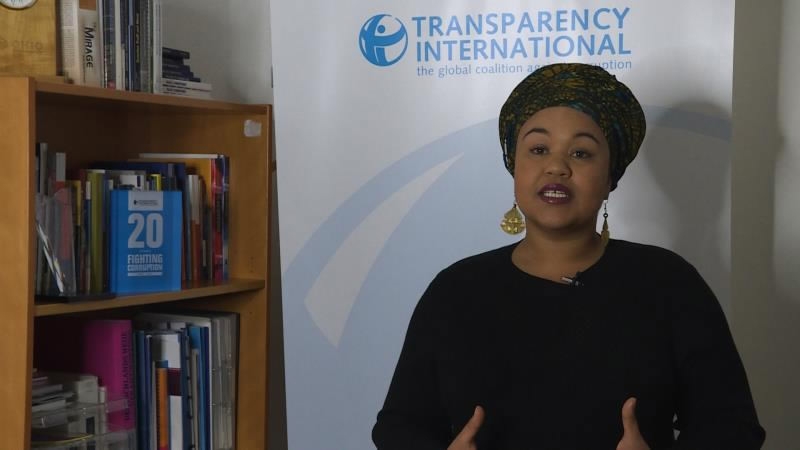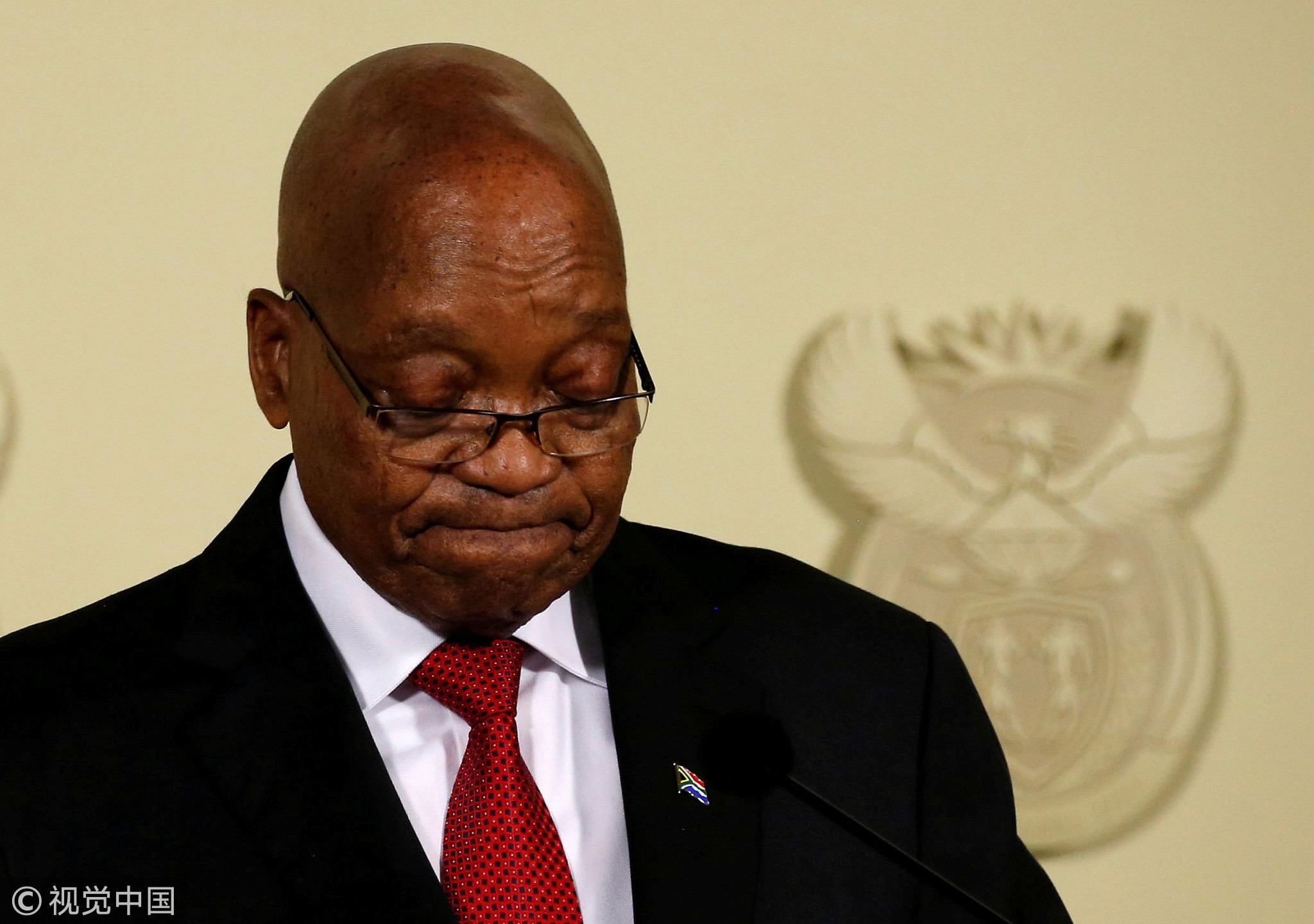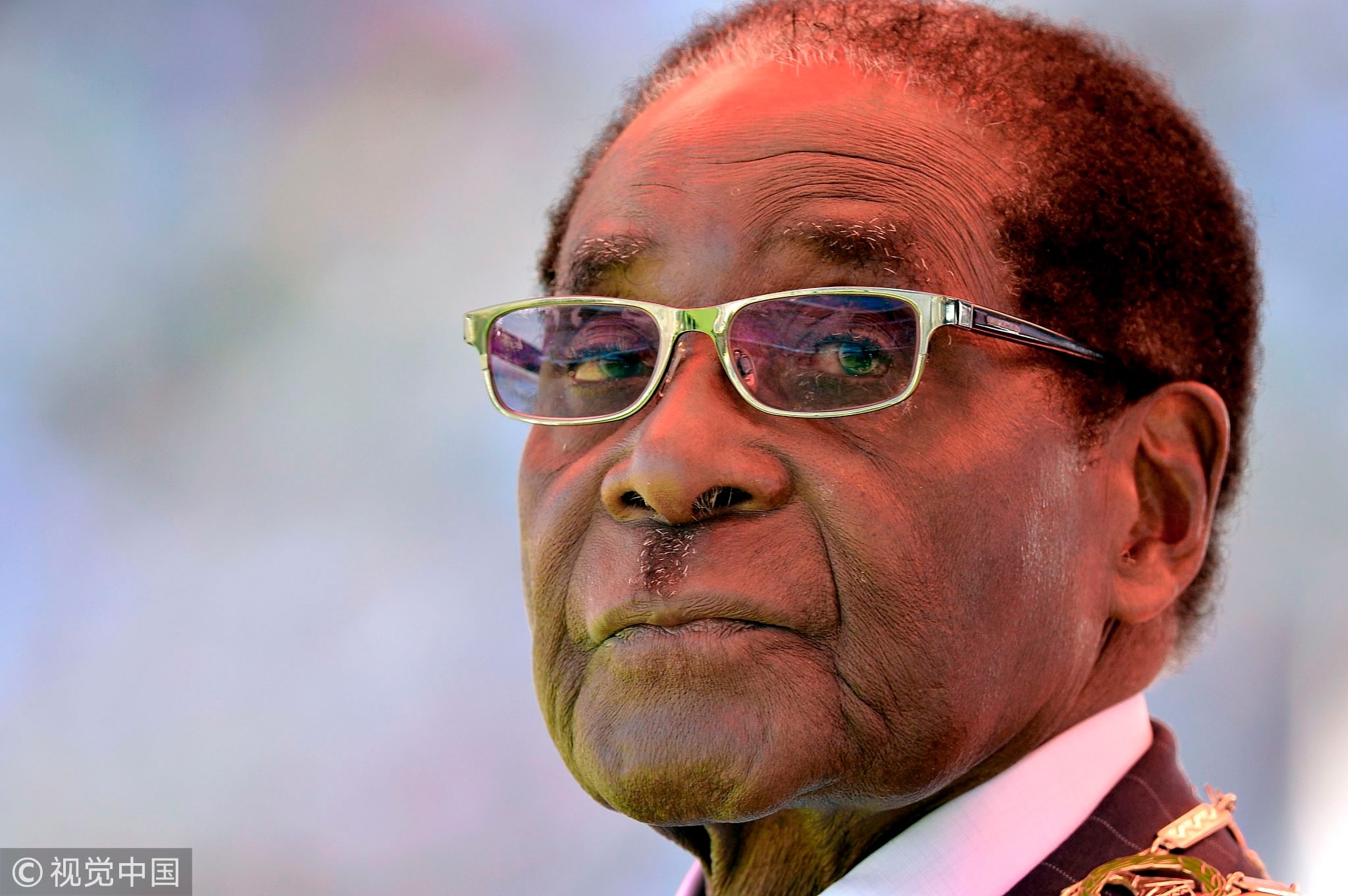
World
14:32, 02-Mar-2018
Weak political will behind Africa corruption – Transparency International
CGTN

Sub-Saharan Africa has emerged as the lowest performing region in the world in Transparency International’s recently-issued annual corruption perceptions index.
The non-governmental organization, based in Berlin, Germany, uses expert assessments and opinion surveys to rank countries based on levels of corruption in government and public services.

South Africa's Jacob Zuma resigned over allegations of corruption. /VCG Photo
South Africa's Jacob Zuma resigned over allegations of corruption. /VCG Photo
“Where we have a judiciary that is interfered with politically, where we have weak institutions, where we have very little political will, this is the context where corruption is allowed to flourish,” said Kate Muwoki, Transparency International’s regional adviser for Southern Africa.
She also noted that there was a strong correlation between suppression of journalists and corruption levels.
Somalia and South Sudan, ravaged by civil war, were rated the most corrupt countries in the world. This year's index also pointed to rising corruption levels in Malawi, Madagascar, Mozambique and Guinea-Bissau.
However, it wasn’t all negative news for the continent. African countries such as Botswana and Namibia scored in the top third of the index.
Since the beginning of last year, five heads of state, including South Africa's Jacob Zuma and Zimbabwe's Robert Mugabe, have resigned over allegations of corruption. A big question is what will happen to politicians facing charges.

Zimbabwe's Robert Mugabe resigned over allegations of corruption. /VCG Photo
Zimbabwe's Robert Mugabe resigned over allegations of corruption. /VCG Photo
"African citizens are tired of these dignified exits from our leaders, where we know the criminal charges that are against them, but often they don't face prosecution,” said Muwoki. “And that won’t change unless we strengthen some of these institutions like the judiciaries”
Some experts say that industrialized nations also have a responsibility to push for greater transparency in the global financial system, which they say enables corruption in Africa and elsewhere.
International advocacy group the ONE Campaign has called for a public register of who actually owns trusts or companies connected to questionable funds.
"Corruption is a global problem,” said Stephan Exo-Kreischer, the head of the German office of the ONE Campaign. “And I think just like climate change, we can only tackle it on an individual state level but also on the global level."
In January, the African Union made fighting corruption its theme for the coming year.

SITEMAP
Copyright © 2018 CGTN. Beijing ICP prepared NO.16065310-3
Copyright © 2018 CGTN. Beijing ICP prepared NO.16065310-3